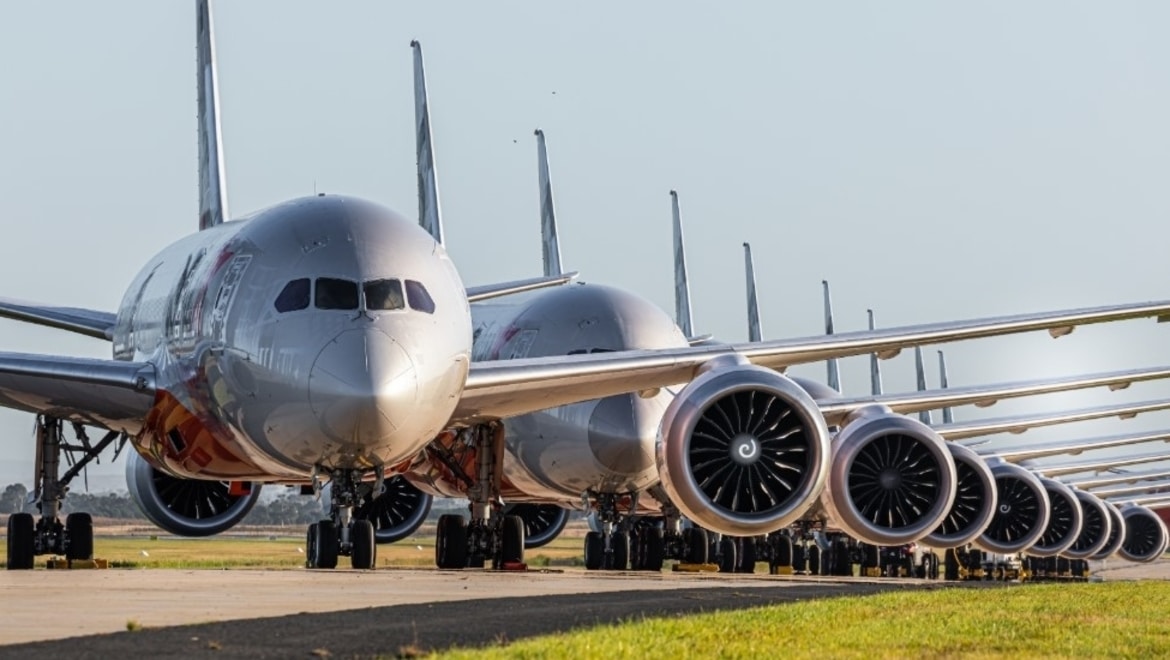
Qantas’ plans to restart international flights on 31 October could be in doubt after fears over the AstraZeneca vaccine caused the Australian government to make changes to its inoculation program.
Last night Prime Minister Scott Morrison said Australia will now prioritise administering the Pfizer vaccine to under 50s rather than the Oxford vaccine that the country has in far greater supply – leading to concerns the whole program will now be delayed.
The change in policy follows similar moves by countries around the world due to concerns the British-created jab could lead to blood clots on a very small number of recipients.
The announcement is significant because Qantas’ chief executive, Alan Joyce, has long maintained he will only allow passengers on long-haul international flights if they have received a COVID vaccine.
However, PM Morrison was keen to stress that the new advice from the Australian Technical Advisory Group on Immunisation was not a prohibition on the use of the AstraZeneca jab in under 50s.
“This is not a directive. This is not an instruction,” he said, adding they were taking “an abundance of caution”.
“Tomorrow, and over the weekend, there will be a recalibration of how the program will need to be adjusted to take into account decisions the government’s taken tonight to accept those recommendations from ATAGI.”
He argued the chances of side effects are tiny. “Let’s note that in the UK, the advice is that some 6,000 people’s lives have already been saved by this very vaccine. So we need to consider the positive benefits,” Morrison said.
“From UK data, the risk of venous thromboembolism following the vaccine was about one to five per million people.
“To put that in some sort of perspective, the combined oral contraceptive pill, that can include adverse side effects of venous thromboembolism – that’s seven to 10 per 10,000.”
The change in advice has ramifications for the vaccination program because Australia has secured 53.8 million doses of the Oxford/AstraZeneca jab compared with just 20 million of the Pfizer alternative. On Friday, PM Morrison revealed the country would purchase an additional 20 million Pfizer doses, but these won’t be available until the final quarter of 2021.
“We will obviously be doing everything we can to seek to move that forward where we can but that is very welcome news,” he said.
Earlier in the day, Health Minister Greg Hunt rejected claims the government didn’t secure enough vaccines and said the new recommendation still meant “the vast bulk of the program remains unchanged”.
“We secured five agreements and nobody knew which vaccines would be successful,” Minister Hunt told Sky News. “There had never been an mRNA [messenger RNA] vaccine that was produced for any time and there had never been a coronavirus vaccine.
“We have four vaccine deals in place: 870,00 Pfizer doses already here, 20 million ordered, and we have 130,000-150,000 arriving a week currently, and increases that are due in May and July.”
Minister Hunt refused to say whether the delays would affect the government’s final target to inoculate all adults by October but conceded it would have an impact on the timing for the under-50s.
Joyce has repeatedly insisted Qantas’ policy is that international travellers must be vaccinated.
In December he said, “Our position on this is clear. We have a duty of care to our people and our passengers, and once a safe and effective vaccine becomes readily available, it will be a requirement for travel on our international services.
“There will be some exceptions for people who can’t – for medical reasons – take vaccines. And our flights to New Zealand will probably be exempt given their success at controlling COVID as well, just as domestic flights will be exempt.
“I acknowledge some people are opposed to vaccines in-principle. We respect that. But in return, we ask everyone who travels on Qantas and Jetstar to respect our safety protocols – which will include a COVID vaccine for international flights, at least until the pandemic is under control overseas.
“In the past week, we’ve asked some of our customers their thoughts on this: 87 per cent said they would take a COVID vaccine if it was required to travel internationally; 85 per cent thought it should be required for travel to at least some countries.
“We will always put safety ahead of popularity – but it seems the vast majority of our customers agree with us on this.”
Currently, only Australian citizens and permanent residents are allowed to enter Australia, with international students, temporary visa holders and tourists banned altogether. Those who do enter are subject to a mandatory 14-day quarantine period for which they have to pay up to $3,000.















